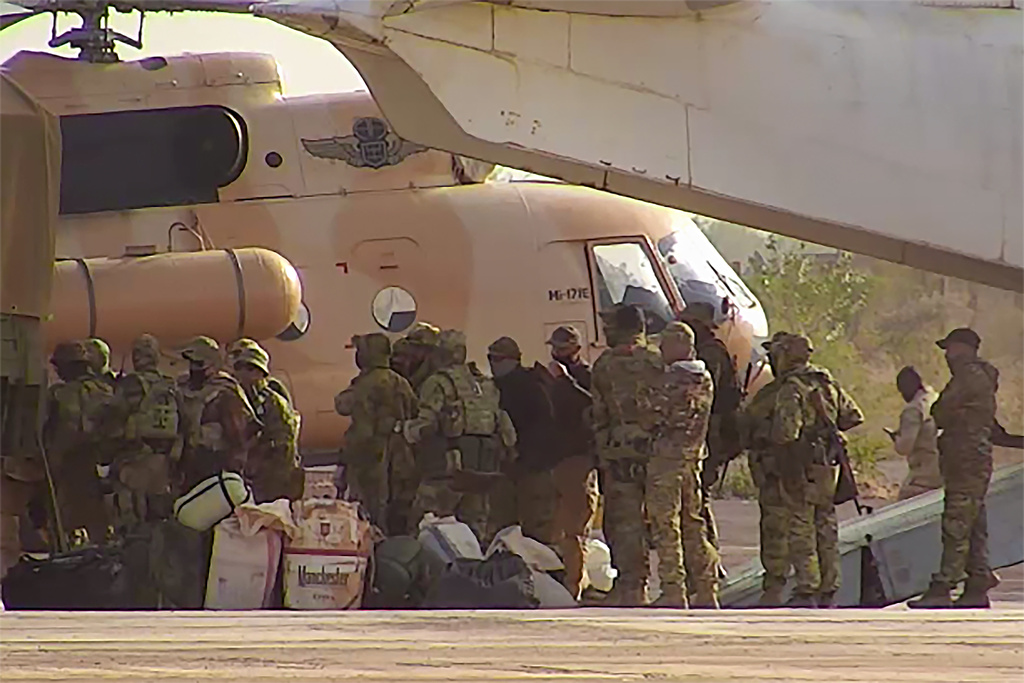Russian mercenary organization Wagner Group is being replaced in the Sahel by the state-controlled Africa Corps. However, it seems unlikely that the change will alter Russian mercenaries’ brutal methods in the terrorism-plagued region, according to experts.
The shift might make conditions in Burkina Faso, Mali and Niger even worse, analysts argue in a paper published by the Combating Terrorism Center at West Point.
Since the Wagner Group arrived in Mali in 2021 and Africa Corps came to Burkina Faso and Niger in 2024, little has happened to quell the violence that has made the region the global leader in terrorism.
“Russia’s Sahel strategy, and arguably its Africa strategy writ large, is one that promotes more disruption and chaos, not less,” analysts Christopher Faulkner, Marcel Plichta and Raphael Parens wrote in late 2024 for the center.
Russian mercenaries’ brutality toward civilians has reduced the stability of all three countries as mercenaries execute people and perpetrate indiscriminate violence.
“Increasingly, civilians are more afraid of being killed by Russian mercenaries than by jihadist groups,” Rand Corp. analyst Ryan Bauer wrote.
As they exited Mali in June, Wagner Group leaders claimed victory after restoring regional capitals to the government’s control and killing insurgent leaders — claims that are “starkly at odds with the prevailing reality” as violence in the country continues to escalate, analyst Samir Bhattacharya recently wrote for the Hindustan Times.
In the weeks leading up to the Wagner Group’s departure, terrorists killed 200 soldiers in Burkina Faso and 100 in Niger, Bhattacharya noted.
“These successive setbacks underscored Wagner’s limited effectiveness in counterinsurgency operations and further highlighted the precarious and deteriorating security landscape across the Sahel region,” Bhattacharya added.
In a statement, Africa Corps leaders said they would continue to support the Malian government at a “a more fundamental level.” Observers say that Africa Corps is likely to focus more on coup-proofing the ruling juntas than helping local troops fight insurgents.
Africa Corps forces helped Burkinabe troops fend off a coup attempt against junta leader Capt. Ibrahim Traoré in 2024. They are similarly serving as protection for Niger’s junta leader Gen. Abdourahamane Tchiani while doing little to stem the tide of violence outside the capital, according to analysts.
“Despite arriving in Ouagadougou and Niamey in January and April 2024, respectively, there is very little evidence to suggest Africa Corps has made any sort of tangible security gains unless one assesses their presence as effectively deterring any would-be coup-plotters from challenging the regimes of Traoré or Tchiani,” Faulkner, Plichta and Parens wrote for the West Point center.
Further complicating matters, Africa Corps has repeatedly failed to meet the government’s recruitment goals. Moscow’s original demand to recruit 40,000 fighters was scaled back to 20,000 — a number that also remains out of reach.
Meanwhile, Africa Corps has absorbed some former Wagner Group mercenaries, perpetuating the violence associated with that organization. Mali’s 2,000 Russian mercenaries, for example, are a mix of old Wagner Group fighters and new Africa Corps recruits.
Russia has used Libya’s port at Tobruk to transport more than 6,000 metric tons of weapons and other materiel into North Africa and the Sahel. Despite its weapons and manpower, the Wagner Group/Africa Corps experienced two high-profile defeats at the hands of insurgents in Mali in 2024.
A joint assault by the then-Wagner Group and Malian Army (FAMa) on the Tuareg community of Tinzaouaten in July 2024 turned into a rout for the attackers, who were ambushed by insurgents from Jama’at Nusrat al-Islam wal-Muslimin (JNIM) as they retreated. In all, 46 mercenaries and 24 Malian soldiers died in the attacks.
A planned October assault was quickly converted to a mission to recover the bodies of those killed in July when mercenaries realized insurgents were tracking their actions, according to Faulkner, Plichta and Parens.
“One can easily connect Wagner’s recent failures in Mali with similar failures in Mozambique and Syria, where defeats and casualties on the battlefield forced Wagner to remove itself from these deployments,” the West Point analysts wrote.
So far, there are no indications that the Africa Corps plans to end its operations in the Sahel. What seems more likely, analysts say, is a continuation of the Russia strategy of spreading chaos and violence under the guise of counterterrorism.
“Rather than building the defense capacity of countries they operate in, Russian mercenaries create an insecure climate and then position themselves as indispensable,” Rand Corp.’s Bauer wrote.

